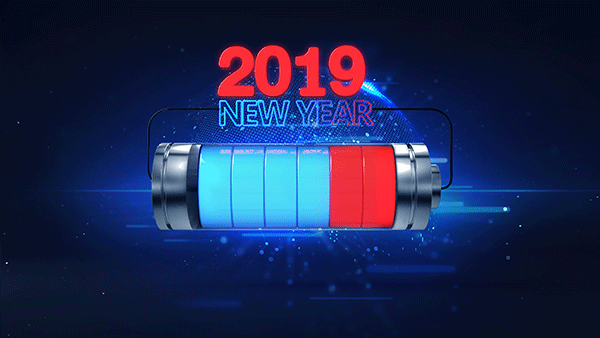How to Charge LiPo Batteries with Balance-Definition and Working
Mar 23, 2020 Pageview:1671
Everyone would want to make sure that their LiPo batteries continue to function optimally so that their devices are not affected. However, if you wish to ensure the longevity of these batteries, balanced charging is something that needs to be given attention.
What is balance charging?
There is a possibility of Individual cells developing differences in charge levels in a multiple-celled battery pack. The problem with lithium-polymer batteries is that they are quite sensitive when it comes to overcharging. Therefore, it needs to be ensured that the individual cells have more or less the same level during charging.
Battery balancing refers to techniques used for improving the capacity of the battery pack having multiple cells so that the longevity of each cell could be enhanced. The balance charger monitors the voltages of individual cells in the pack via a connector present on the pack. It then adjusts the rate of charge accordingly. This process is referred to as balance charging.
It is prudent to mention that LiPo batteries can explode or even catch fire if you do not handle them correctly. Therefore, necessary precautions need to be taken for their charging.
How does LiPo battery balance charging work?
The purpose of a LiPo charger is to make sure that the battery is charged to a specific voltage. This voltage depends on the number of cells in the pack, which is then multiplied by 4.2V. The charger adjusts voltage so that the current can flow to the battery.
The voltage is first raised so that the amount of current flowing matches with what the user has selected. This is the constant current stage. The voltage difference between the pack and the charger is what leads to the flow of current. The greater difference implies that the charge current will be higher as well. When the charging is in process, there is a rise in the resting voltage of the pack. Once the maximum voltage is reached via the charge voltage, the charger maintains it at the position. This is the stage of constant voltage.
While the charging voltage is maintained at the maximum pack voltage, the flow of current continues owing to the difference between the pack resting voltage and the charge. With the rise in resting voltage, the difference narrows down until it comes quite close. The charge current drops more during this phase. Finally, when both the voltage and charge current reach their specified values, the charging cycle completes.
Nearly all new LiPo chargers are equipped with cell balancers. Older chargers might need an external balancer so that balance charging can be ensured. The balancer makes use of the LiPo balance connector for accessing each individual cell. When it is connected, it can monitor the voltage of these cells and discharge high cells if the need arises so that all the cells can be at the same voltage.
If you are not sure that your charger is provided with a balancer, there is a simple way to find out. If you have to plug in balance leads to your charger from the battery, it indicates that your charger has a balance function.
On the other hand, if you merely use the main connector with your charger, your charger lacks the function of balancing. Using the main lead for your charger implies that the voltage of the whole battery is read and not individual cells. Therefore, you will need to use a battery monitor to make sure that you do not encounter any problems with the battery.
You also have the option of getting separate battery balancers for your LiPo cells so that the voltages of each cell are equal. However, if you get a new LiPo charger, it is quite unlikely that you will have to worry about balancers.
How do you balance a LiPo battery?
It is vital that each cell of the LiPo battery pack has the same voltage so that irregular current flow can be prevented, and the pack can last for a longer period.
You will notice that your multi-cell pack has two sets of leads coming out. One of these sets has to be connected to the ESC. This one comprises red, which is positive and black, which is a negative lead. The other set has thinner wires that go into the white connector wherein a separate wire comes out from every cell. This is the balancing connector. The number of wires that go into it depends on the number of cells present in the battery back.
You will need a charger that has the feature of balancing if you want to balance the pack. Sometimes, you might need to use a Li-Po balancer separately along with the charger. Make sure that the charger is specific for the lithium polymer batteries.
Final words
If you want to make sure that LiPo batteries last for a long time and accidents are prevented, there are some things that you need to do.
For one thing, ensure that the battery is never left unattended when it is charging. Check the battery from time to time. If you feel that it is getting warm or is swelling, the charging needs to be stopped immediately, and the opinion of an expert needs to be taken before you use the battery again.
A damaged battery should never be charged. Therefore, if your battery has any visible signs of damage or is swollen, avoid charging it.
The battery needs to be charged at 1C or less. You get the option of setting a charging rate with a lot of chargers. Many batteries support around 5C charge rates, thereby ensuring fast charging. It will work in favor of your battery if you charge it at 1C or less. This makes sure that the chemicals inside the battery gain energy slower, thereby making them more stable and increasing the life of your battery.
It is advisable to charge the battery in a fireproof location or add an extra layer of protection as a precaution. Make sure that the battery type and the number of cells are set on the charger correctly.
Leave Message
Hottest Categories
-
Hottest Industry News
-
Latest Industry News














